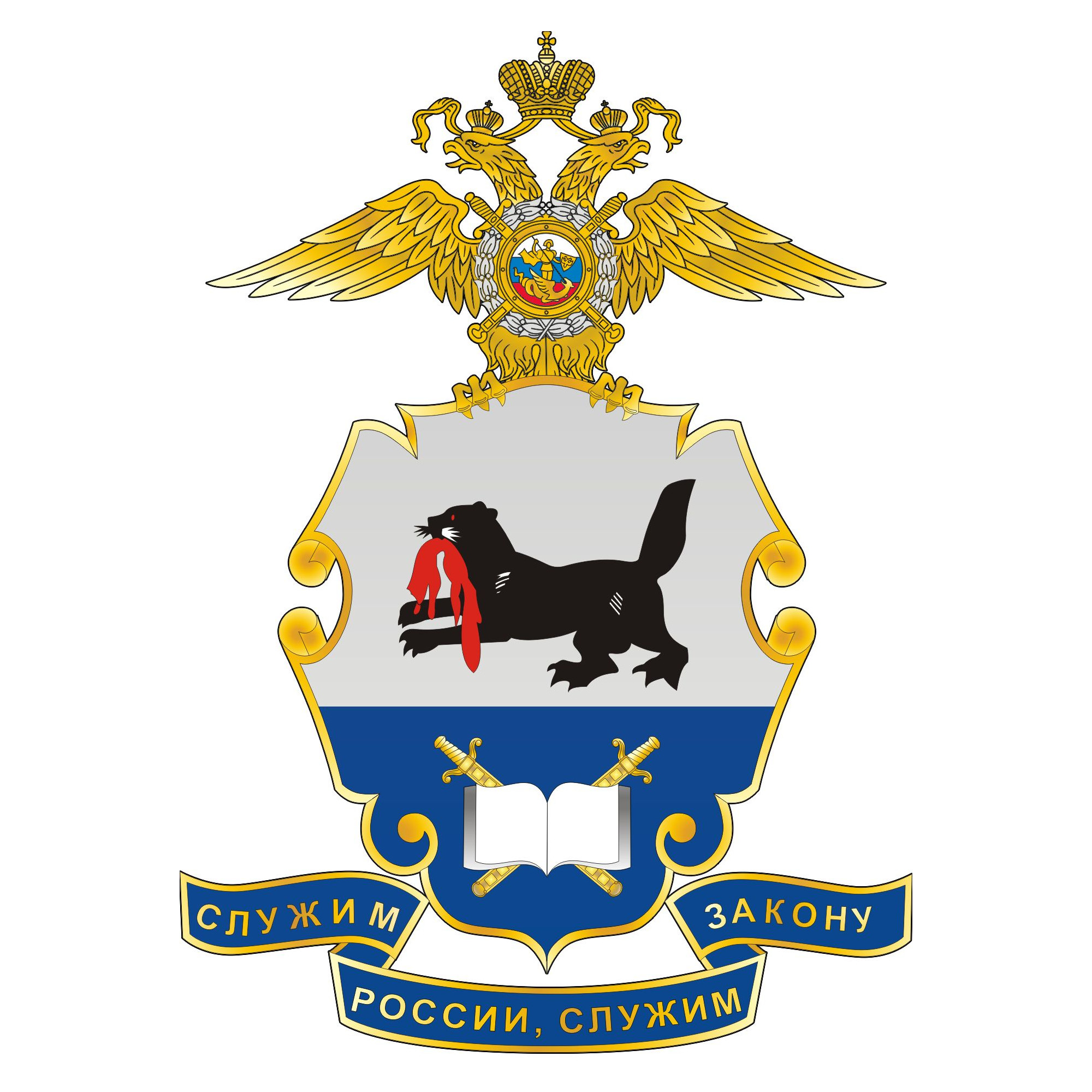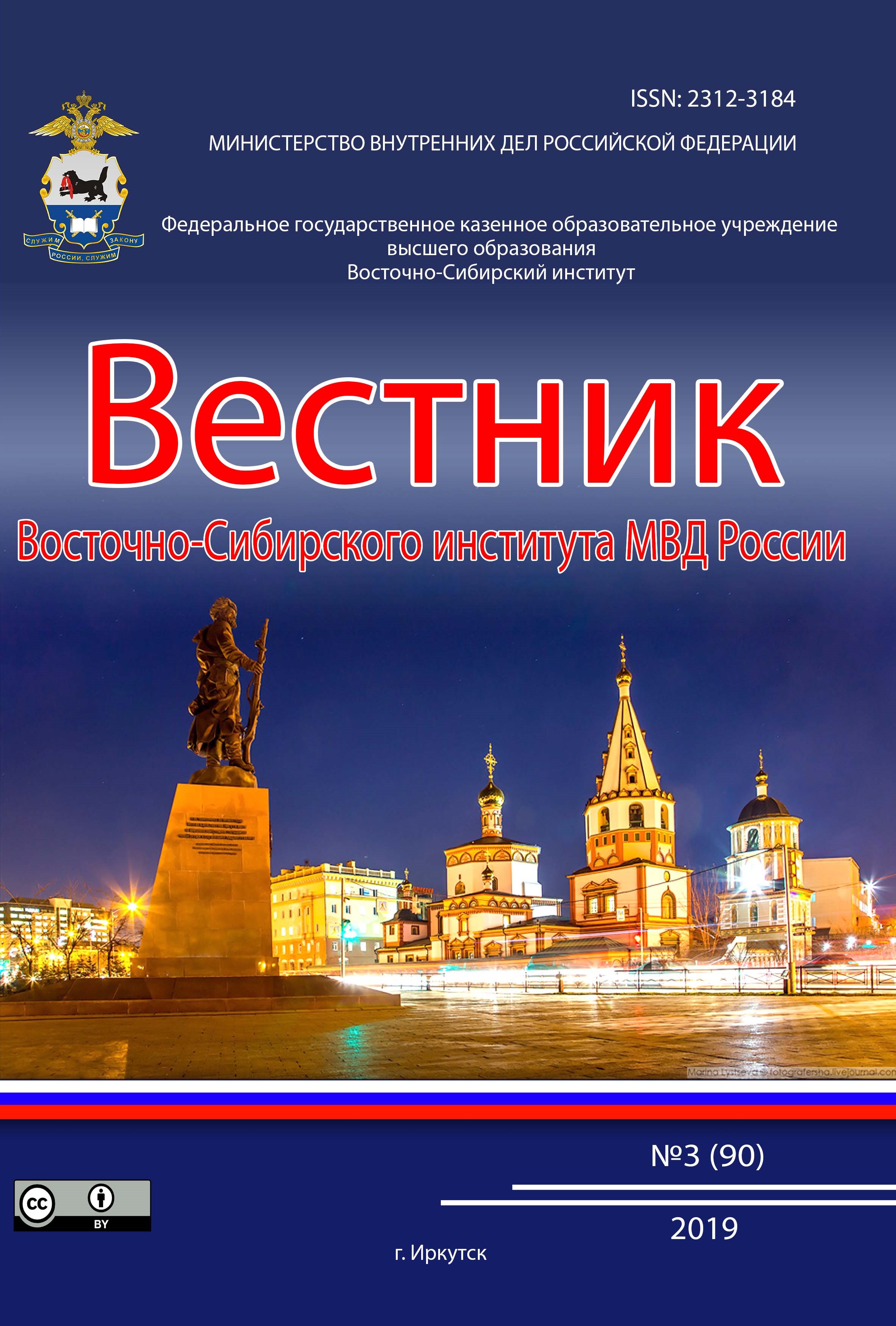from 01.01.2022 until now
Moscow, Moscow, Russian Federation
Introduction: Currently, the issue of revising the operational-search measure «supervision of postal, telegraphic and other communications» seems relevant. This is due to the fact that in modern society, citizens actively use various Internet services to exchange information. Obtaining information operationally in this area has a number of problems, therefore it is proposed to include such control items in the event under consideration. The issue of correspondence sent individually without using communication services also remains relevant. Methods and materials: Scientific literature and federal legislation were used to write the work. The dialectical method of cognition, general scientific methods were used: logical (analysis, synthesis, description, comparison) and special methods of legal science: comparative legal and formal legal. The Results of the Study: The individual features are highlighted, the concept is formulated and the classification of the operational-search activity «supervision of postal, telegraphic and other communications» is proposed. Findings and Conclusions: The control of messages, regardless of the method and form of their transmission, will allow the operational units of the internal affairs bodies, in accordance with the procedure established by law, to obtain information in this area and present the results of operational investigative activities to provide the criminal process with the necessary evidence.
operational search-measure «supervision of postal, telegraphic and other communications», electronic message, communication service, technical communication channel, correspondence
1. Yakovets E.N. Control of postal items, telegraphic and other messages as an "intrusive" operational search event / E.N. Yakovets // Epomen. 2021. No. 60. pp. 260-279.
2. Bykadorova E.V. Operational investigative measures of judicial authorization. The Eurasian Union of Scientists. 2018. No. 3 (48). pp. 64-66.
3. Zemskova A.V. Theoretical foundations of the use of the results of operational investigative activities in the investigation of crimes: dissertation...Doctor of Law: 12.00.09. - Moscow, 2002. -420 p.
4. Sokolov Yu.N. The use of the results of electronic surveillance in criminal proceedings and operational investigative activities: dissertation... PhD: 12.00.09. Yekaterinburg, -2004. -218 p.
5. Lapin E.S., Mikhailova Yu.N. A short course on the theoretical foundations of operational investigative activities: A textbook for students. Saratov, publishing house "Scientific Book", 2006. - 148 p.
6. Bazhenov S.V., Baklanov L.A., Vasilchenko D.A., Gusev V.A., Desyatov M.S., Zenkin D.V., Lugovik V.F., Lugovich S.M., Malakhov A.S., Nevsky E.P., Serov A.V., Chechetin A.E. Operational investigative activities of internal affairs bodies. The general part. An electronic educational publication. Omsk: Omsk Academy of the Ministry of Internal Affairs of Russia, 2020. URL: https://ordrf.ru/uchebnik/page98.html (accessed 25.01.2024). Access mode: free.
7. The legal foundations of the organization of operational investigative activities: a course of lectures / A.V. Parfenov, V.M. Atmazhitov, Yu.A. Lapunova, R.R. Hannanov - M.: Academy of Management of the Ministry of Internal Affairs of Russia, 2021. - 104 p.
8. Serednev V.A. The Internet as an effective network space for conducting operational investigative activities // "Issues of modern jurisprudence". 2016. No. 4 (55). pp. 67-80.
9. Legal regulation of operational investigative measures. Lecture / S.I. Zakhartsev, V.A. Vikhrov, N.O. Kiryushkina, V.P. Salnikov // Legal science: history and modernity. 2018. No. 5. pp. 98-135.
10. Sharov V.I. Operational investigative measures on the Internet // Society and law. 2018. No. 2 (64). pp. 82-87.
11. Mashkov S.A. On the discrepancy between the names of operational investigative measures and their content // Prologue: journal of Law. 2018. No. 1. pp. 36-41.
12. Lavyshik A.O. Tactics and methods of crime investigation: theory, practice, innovations: materials of the round table with international participation, 11/15/2018, Minsk, Belarus / BSU, Law Faculty, Department of Criminology; [editor: V.B. Shabanov (ed.), etc.]. URL: https://elib.bsu.by/bitstream/123456789/210874/1/77-80.pdf (accessed 05.02.2024). Access mode: free.
13. Chechetin A.E. Operational investigative measures: concept, essence, structure: Preprint. – Preprint. Barnaul: Barnaul Law Institute of the Ministry of Internal Affairs of Russia, 2004. 49 p.
14. Bobrov V.G. The concept of operational investigative measures. The grounds and conditions for conducting operational investigative measures: Lecture. - M.: Academy of Management of the Ministry of Internal Affairs of Russia, 2003. - 64 p.
15. Terekhin V.A. Sensation and perception: Textbook. Rostov-on-Don, 2009. -270 p. URL: https://studylib.ru/doc/6389109/uchebnik-o.iv.-terehin (date of access: 02/12/2024). Access mode: free.
16. Zhabakova T.V. General psychology. Mental cognitive processes: a textbook / T.V. Zhabakova; South Ural State Humanitarian Pedagogical University. – [Chelyabinsk]: South Ural Scientific Center of the Russian Academy of Sciences, 2021. - 76 p.
17. Barabanov R.E. Psychological mechanisms of visual perception of form and space / R. E. Barabanov // Psychology. Historical and critical reviews and modern research. 2023. Vol. 12, No. 8-1. pp. 64-75.
18. Nemov R.S. Psychology: textbook / R.S. Nemov. – 2nd ed., ster. – M.: KNORUS, 2020. - 718 p.
19. Philosophy: A textbook for higher education institutions (6th edition, revised and supplemented). - Rostov n/A: "Phoenix", 2003. - 576 p. (The series "Higher School").
20. Ponkin I.V., Redkina A.I. Classification as a method of scientific research, in particular in legal science // Bulletin of the Perm University. Legal sciences. 2017. No. 3 (37). pp. 249-259.











